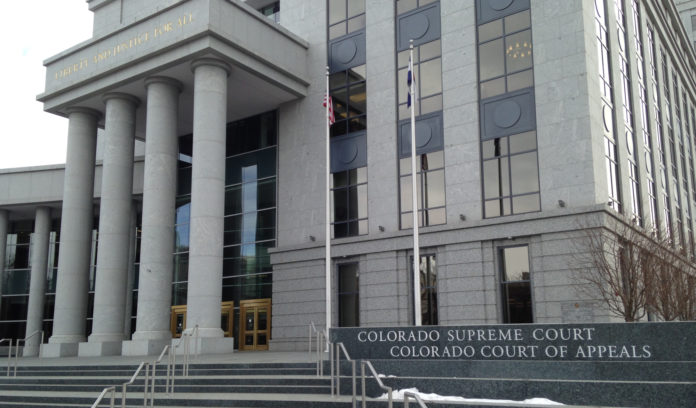
Editor’s Note: Law Week Colorado edits court opinion summaries for style and, when necessary, length.
City & County of Denver v. Board of County Commissioners
The Colorado Supreme Court evaluated a summons to settle a decades-long dispute between two Colorado jurisdictions that find themselves in “merry-go-round” litigation. Rather than a breach in the fortifications, the court confronted a breach of contract. It needed to decide whether, under Colorado law, Adams County could bring a breach-of-contract claim against the City and County of Denver in 2018.
There is little factual disagreement between the parties, the opinion noted. Both agreed they entered into the 1988 Intergovernmental Agreement, which required Denver to install a noise-monitoring system and to use it to calculate noise levels surrounding the soon-to-open Denver International Airport. Both agreed, in violation of its contractual mandate, Denver instead installed a noise-modeling system, which it has used to report noise data ever since DIA opened. And both agreed Adams knew, no later than 1995, Denver was using a modeling system and not a monitoring system.
Where Adams and Denver part ways is when under the applicable three-year statute of limitations should Adams have brought this action?
According to the opinion, a claim cannot reach its expiration date if the statute-of-limitations clock never starts ticking in the first place. That clock begins to tick on the date a claim accrues. But when did Adams’ breach-of-contract claim accrue?
The parties advanced opposing accrual theories. Denver contended the claim accrued no later than 1995, as Adams was aware by that time Denver had installed a modeling system and was using it to calculate and report noise data. Adams, by contrast, asked the Colorado Supreme Court to embrace the Court of Appeals’ determination the claim accrued in 2014, when Adams learned Denver’s modeling system was underreporting noise data. It was only then, the Court of Appeals reasoned, Adams “became aware it suffered damages” and had “‘certainty of harm and incentive to sue.’”
The Colorado Supreme Court concluded the Court of Appeals erred by minting and applying a damages-based accrual rule. The state Supreme Court found the appellate holding is inconsistent with the plain language of Colorado’s accrual statute, the relevant case law and the public policy considerations that underpin statutes of limitations. To the extent the Court of Appeals leaned on the “certainty of harm and incentive to sue” language from the 1997 Colorado Supreme Court ruling in Bennett Bear Creek Farm Water & Sanitation District v. City & County of Denver, it clarified this part of Bennett Bear Creek was “mere dictum.”
Because Colorado law stipulates a breach-of-contract claim accrues at the time the breach “is discovered or should have been discovered by the exercise of reasonable diligence,” and because Adams learned no later than 1995 Denver breached the IGA by using a modeling system rather than a monitoring system, Adams’ claim against Denver is barred by the applicable three-year statute of limitations.
The Colorado Supreme Court reversed the appeals judgment and dismissed Adams’ complaint as barred by the statute of limitations.

